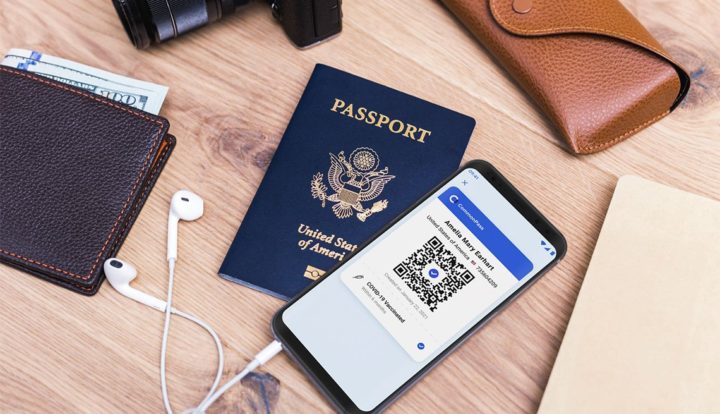As the COVID-19 pandemic mercifully draws to a close, a new struggle appears on the horizon.
That struggle is vaccination: who’s vaccinated, when, where and how? How do we know if enough people are vaccinated? How does vaccination change the rules for social distancing? Most importantly, how many people need to be vaccinated before we can all go back to living normal lives?
The jury is still out on the last one, and sources conflict. Johns Hopkins argues that we need “about 70%” of people vaccinated, but other estimates put that threshold in the 80-85% range. As of right now, vaccination rates hover around 19% nationally, with different states having different uptake rates.
In Tennessee, our vaccination rate is about 16%, below the national average, whereas New York has a much higher rate of 22%. As vaccinations become available to broader sections of the adult population (as they did in Tennessee on April 5) due to greater supply, the problem public health officials run into is non-vaccination rates, otherwise called “vaccine hesitancy,” which varies from state to state. Like all things COVID-related, the question of what to do about non-vaccinated individuals became a hot-button political issue almost instantaneously.

In Democratic strongholds like New York, the idea of “vaccine passports” quickly gained prominence. Albany implemented their own version of an immunity certificate called an “Excelsior Pass” recently. It serves as a way for citizens to quickly provide access to their proof of immunization or immunity so they can, as the state website describes it, “attend sporting events, arts performances and more!”
Yet in red states like Florida, Texas and Tennessee, the idea of vaccine passports has become a political football. These states’ governors, among others, have categorically denied the need for a vaccine passport and have even introduced executive orders to strangle the idea, should it arise in their state legislatures, in the crib. Republicans have decried vaccine passports as intrusions by the government into private medical affairs. They are also concerned that allowing vaccine passports to proliferate will allow businesses to practice de facto discrimination against the large population of people who don’t trust the vaccine enough to take it or, for whatever reason, simply choose not to. The Biden administration, in a surprising show of tact, has explicitly denied that the White House will support a national COVID-19 vaccination certification program.
The fact that vaccination, or proof thereof, is a political football is just another sign of the deep lack of trust that runs through American politics. Republicans fear that the Democratic administration in Washington, now in charge and demonstrating that it isn’t willing to compromise with the minority party, is searching for any excuse, no matter how arbitrary, to expand federal power and oversight. There is also, no doubt, a strain of conservative distrust for Big Business and Big Tech and their role in developing and agitating for these measures.
Moreover, the fact that Democrats are openly advocating for “vaccine passports” in a way that perfectly mirrors every fever-dreamed conspiracy theory of anti-establishment media personalities makes is sure to make conservatives wonder if the push for vaccine passports isn’t, in some strange way, a kind of demonstration of power.
On the other hand, the extremely lackluster vaccination rates among conservative constituencies have Democrats worried that the stubbornness of (especially rural) skeptical populations will prolong the damaging economic and public health effects of the pandemic. They see many conservatives as putting pride and superficial reverence for “muh freedum” ahead of the public good.
It’s hard not to find a little in both sides to agree with. On the one hand, the recent hard-push for a bifurcated society of vaccinated/unvaccinated people, maintained by flashing official documents just smacks of antagonism and cruelty. Especially since a large percentage of those vaccine hesitant are likely not their political enemies, but just everyday people who have normal concerns about putting experimental drug cocktails in their bodies (everything we know so far says the vaccines are safe, but scientists have been wrong before). On the other hand, a goodly number of people are just being stubborn, prideful, or both in refusing a vaccine. If we fail to reach a herd immunity that would allow for a return to normal, it will certainly be because of this group of holdouts who reject the vaccine “on principle,” whatever principles those might be.
Tennessee already has a problem with vaccine hesitancy among rural populations, who stand on their principle of freedom not to get vaccinated, or think the vaccines are toxic, or just, for one reason or another, will not get the jab. Rural health departments have the doses, but they can’t fill the appointments.
Part of that has been the messaging, and the culture wars surrounding it. Fundamentally it is a left versus right affair, like everything else, and it revolves around symbols. Coastal liberals have identified themselves as highly afraid of the disease, willing to implement and endure draconian lockdowns and engage in cultic social shaming behavior of those who flout the safety precautions. Conservatives, naturally, decided that whatever liberals were doing, they were going to do the opposite. If Californians were going to quail at people in the Whole Foods without masks or stay in their houses for six months at a stretch, then Tennesseans were going to go about their lives as normal, even if that meant making themselves susceptible to a deadly disease.
Therefore, just as coastal liberals have latched on to the nanny-state solution of vaccination passports, conservatives have decried them. Rather than try to resolve this tense, partisan slap fight, a better approach would be to just diffuse the situation entirely. If you really want herd immunity, you want conservatives to get vaccinated. If you want them to get vaccinated, you have to stop proposing these various social control schemes to try to coerce people to do the right thing. Thus the best way to to achieve high vaccination rates is, paradoxically, to try our best not to mandate vaccinations.

